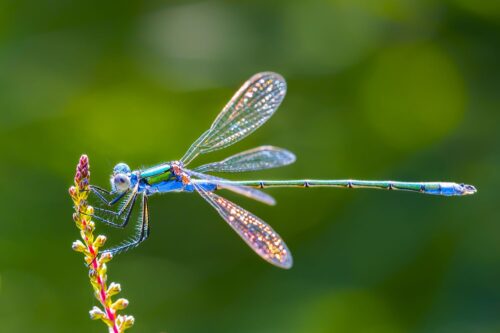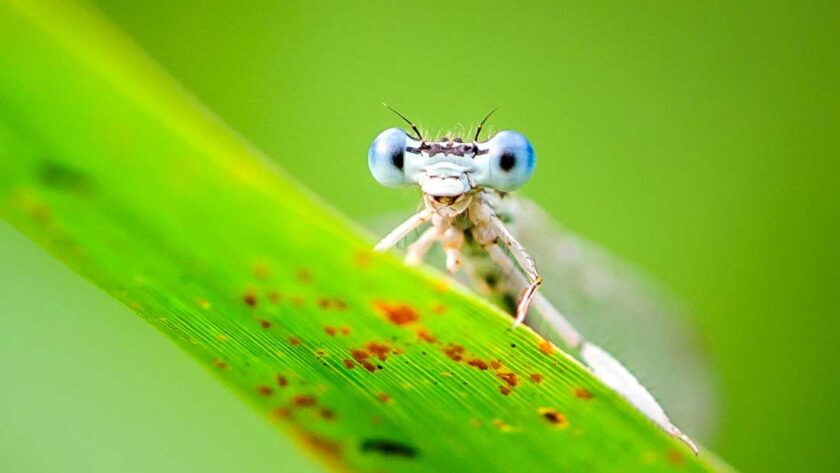As the sweltering heat of summer descends upon us, so do the incessant buzzing and biting of mosquitoes. These tiny, blood-thirsty pests seem to thrive during this time, leaving us with itchy welts and a constant need for repellents.
Mosquito-borne diseases are diseases that can be spread through the bite of mosquitoes. These diseases may be caused by a virus, also known as arboviruses, or can be caused by parasites. Several of the mosquito species found in Florida are capable of transmitting diseases to humans, horses, and other animals. Symptoms of these illnesses can range from mild to very severe.
Mosquito-borne diseases found in Florida include West Nile virus disease, Eastern equine encephalitis, and St. Louis encephalitis. Many other mosquito-borne diseases are found in different parts of the world, including chikungunya fever, dengue fever, malaria, yellow fever, and Rift Valley fever.
But what if there was a natural, elegant solution to keep these pesky mosquitoes at bay?
Enter Dragonflies

The dragonfly, with its striking iridescent wings and graceful flight, is not just a beautiful insect to admire but also a formidable predator. One dragonfly alone can consume hundreds of mosquitoes in a single day!
This natural pest control method is not only effective but environmentally friendly as well, making it the perfect addition to any mosquito-ridden environment.
So, if you’re tired of swatting away mosquitoes and itching from their bites, keep reading to learn how to invite these graceful guardians into your outdoor sanctuary and witness the magic unfold!
The Ecological Importance of Dragonflies
Dragonflies are more than just elegant and captivating insects; they are essential components of many ecosystems around the world. One of their most remarkable traits is their insatiable appetite for mosquitoes and other small insects.
A single dragonfly can devour up to hundreds of mosquitoes per day, making them an invaluable natural predator for controlling mosquito populations.
By preying on mosquitoes, dragonflies help to prevent the rapid proliferation of these disease-carrying pests. Mosquitoes are notorious for transmitting diseases such as malaria, dengue fever, Zika virus, and West Nile virus to both humans and animals.
Having dragonflies in your yard acts as a first line of defense against mosquito-borne illnesses, creating a safer and more enjoyable outdoor experience for you and your family.
Furthermore, dragonflies are themselves a part of the food chain for various birds, fish, and other insect-eating creatures. Their presence sustains these predator populations, contributing to the overall balance of the ecosystem.
Attracting Dragonflies to Your Yard
Now that we understand the importance of dragonflies in maintaining ecological harmony, let’s dive into the steps you can take to attract these remarkable insects to your yard or garden.
Water Features: Dragonflies are strongly attracted to water, especially still or slow-moving water where they can lay their eggs. Consider adding a small pond, birdbath, or even a water-filled container to your outdoor space. Creating a water feature not only entices dragonflies but also adds a touch of serenity and beauty to your surroundings. The water should be about 2 feet deep, which is deep enough for dragonflies but too deep for mosquito larvae to survive.
- Native Plants: Dragonflies are drawn to native plants that provide them with shelter and food. Opt for a diverse selection of plants that bloom at different times throughout the season to ensure a continuous food supply for adult dragonflies.
- Native Aquatic Plants: Dragonflies often lay their eggs in or near water, making native aquatic plants a great choice. Some examples include water lilies (Nymphaea spp.), water hawthorn (Aponogeton distachyos), and submerged plants like hornwort (Ceratophyllum demersum).
- Emergent Plants: These are plants that grow near the water’s edge and provide perching spots for adult dragonflies. Common emergent plants that attract dragonflies include cattails (Typha spp.), bulrushes (Scirpus spp.), and rushes (Juncus spp.).
- Grasses: Dragonflies often rest on tall grasses, so including a variety of native grasses in your landscape is beneficial. Some suitable options include big bluestem (Andropogon gerardii), little bluestem (Schizachyrium scoparium), and switchgrass (Panicum virgatum).
- Irises: Irises are not only beautiful flowers but also attract dragonflies with their sword-like leaves and abundant nectar. Bearded irises (Iris germanica) and blue flag irises (Iris versicolor) are commonly favored by dragonflies.
- Milkweed: As a host plant for butterflies, milkweed (Asclepias spp.) also attracts dragonflies. These plants are vital for the survival of monarch butterflies, and their presence can add a touch of color and elegance to your garden.
- Joe-Pye Weed: Joe-Pye weed (Eutrochium spp.) is a tall perennial plant that produces clusters of pink or purple flowers. It attracts various insects, including dragonflies, with its nectar-rich blooms.
- Cardinal Flower: Cardinal flower (Lobelia cardinalis) is a stunning red-flowered perennial that dragonflies find irresistible. Its tubular flowers provide a convenient spot for dragonflies to sip nectar.
- Black-Eyed Susan: Black-eyed Susans (Rudbeckia spp.) are not only attractive to bees and butterflies but also to dragonflies. These cheerful, daisy-like flowers are a great addition to any dragonfly-friendly garden.
- Meadowsweet: Meadowsweet (Filipendula ulmaria) is a fragrant perennial that attracts dragonflies with its white or pink flower clusters. It also serves as a food source for their prey insects.
- Catmint: Catmint (Nepeta spp.) is a low-maintenance perennial that not only attracts dragonflies but also repels mosquitoes, making it a double benefit for your garden.
- Sunlit Spaces: Dragonflies are sun-loving insects and are more likely to frequent areas with plenty of sunlight. Keep this in mind when designing your garden or yard, ensuring that there are sunny spots where dragonflies can bask and warm their bodies.
- Avoid Chemicals: Dragonflies are sensitive to chemicals and pesticides, which can harm not only the insects themselves but also their potential prey. Embrace organic gardening practices and avoid using harmful chemicals to create a safe and welcoming environment for dragonflies.
- Provide Perching Spots: Dragonflies require perching spots to rest and survey their hunting grounds. Install tall sticks or stakes around your water feature or garden to give these flying acrobats convenient spots to rest between their hunting expeditions.
As we embrace the joys of summer, we inevitably face the nuisance of mosquitoes. However, by inviting dragonflies into our yards and gardens, we can benefit from their astounding mosquito-munching abilities and witness nature’s pest control at its finest.
Dragonflies not only add a touch of enchantment to our outdoor spaces but also contribute to a healthier ecosystem by playing a vital role in keeping mosquito populations in check. With water features, native plants, and thoughtful landscaping, you can create an oasis that attracts these graceful guardians, making your outdoor adventures more enjoyable and mosquito-free.
So, let your garden become a haven for these mesmerizing creatures and experience the magic of dragonflies as they dance through the air, keeping those pesky mosquitoes at bay.





